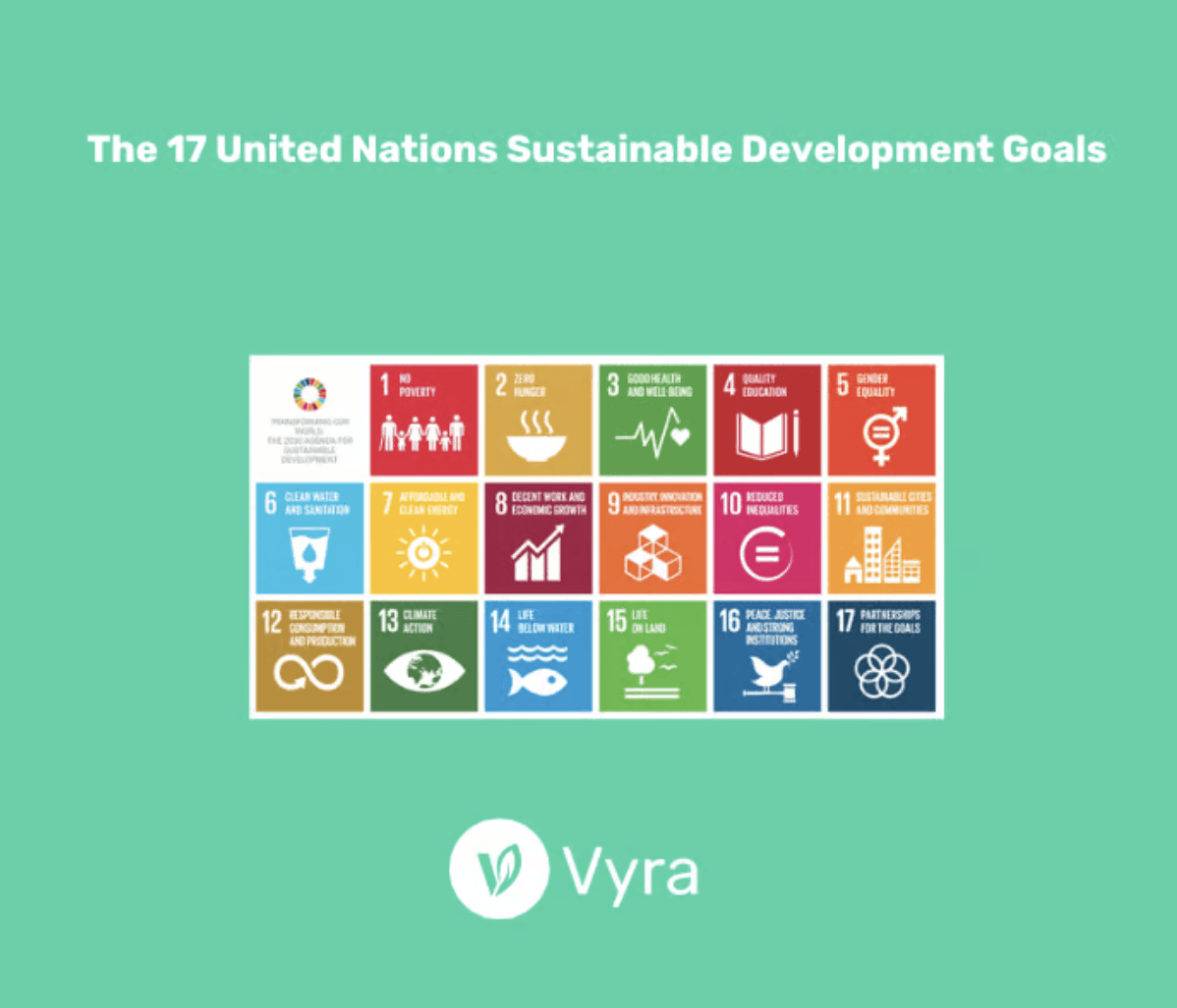15 Feb 2024
Happy Thursday 🌱
The United Nations Sustainable Development Goals (UN SDGs) are synonymous with sustainability inside and outside of business.
The journey to the UN Sustainable Development Goals (SDGs) began in 2000 with the Millennium Development Goals.
Building on the successes and lessons learned from this, the SDGs were born in 2015, marking a universal call to action to end poverty, protect the planet, and ensure that all people enjoy peace and prosperity by 2030.

Last year, I sat down with Valerie Hickey, Global Director for Environment, Natural Resources and the Blue Economy for the World Bank.
I wanted to learn how businesses can truly align with the UN Sustainable Development Goals.
Firstly I asked, what is the World Bank?
“So the bank is actually five institutions, two of which work in the public sector, one of which is called the International Bank for Reconstruction and Development, one called the International Development Association.
We've got a public guarantee agency called MIGA, the Multilateral International Guarantee Agency. We've got a private sector agency that lends to the private sector called the International Finance Corporation.
Finally, we've got an agency that nobody really understands, myself included, called the International Center for Sustainable Investment Disputes, where we help mediate problems between private companies and countries when they're investing in them.
So that's what we do. We've been around for almost 80 years.
And, you know, we're one of those institutions that's in the sad position of having to do more and being more popular, the worse the world is going.”
Secondly, I asked, how do you approach the Sustainable Development Goals?
We spoke for 50 minutes - so I’ve distilled the key takeaways into six actionable steps for you.
Beyond Either/Or: Valerie emphasises the need to move beyond the binary thinking that has characterised the climate change debate. She states, "We can't live in an either-or world... We live in a both-and world." This perspective challenges the notion that we must choose between economic development and environmental preservation.
Integrating Economy and Environment: The traditional debate often pits environmental sustainability against economic growth, suggesting that one can only be achieved at the expense of the other. Valerie counters this by asserting, "We need both energy access and to decouple that energy from being carbon intensive. We need both strong economies and a livable planet."
Shifting Focus to Green Economies: The World Bank's strategy, as Valerie describes, is evolving from funding isolated green projects to fostering entire green economies. This approach aims for sustainable, environmentally friendly but also resilient, and inclusive development.
Learning from Past Projects: Valerie reflects on past initiatives, noting that while individual projects can achieve "near environmental perfection," their benefits often diminish once the project concludes. This observation has led to a pivot towards creating enduring green economies.
Resilience as a Key Factor: The COVID-19 pandemic highlighted the fragility of global development gains. Valerie points out that "a lot of the development benefits... disappeared very quickly when COVID hit," underscoring the importance of building resilient systems that can withstand economic shocks, climate change, and conflicts.
A Holistic Approach to Green Economies: The focus is not solely on environmental sustainability when envisioning green economies. Valerie explains that these economies must also be resilient, able to recover from setbacks like pandemics and conflicts, and inclusive, ensuring that benefits are widely shared and support the most vulnerable.
Final note
I want you to replace the idea of Green Economies with Green Companies. Next, screen any idea for a sustainability initiative through the lens of each of the six steps above. Whether that’s choosing a specific Sustainable Development Goal to align your organisation with, or any other initiative.
In 2023, the World Bank mapped their UN SDG progress into a Trello board for people to learn from. (link to Trello board)
